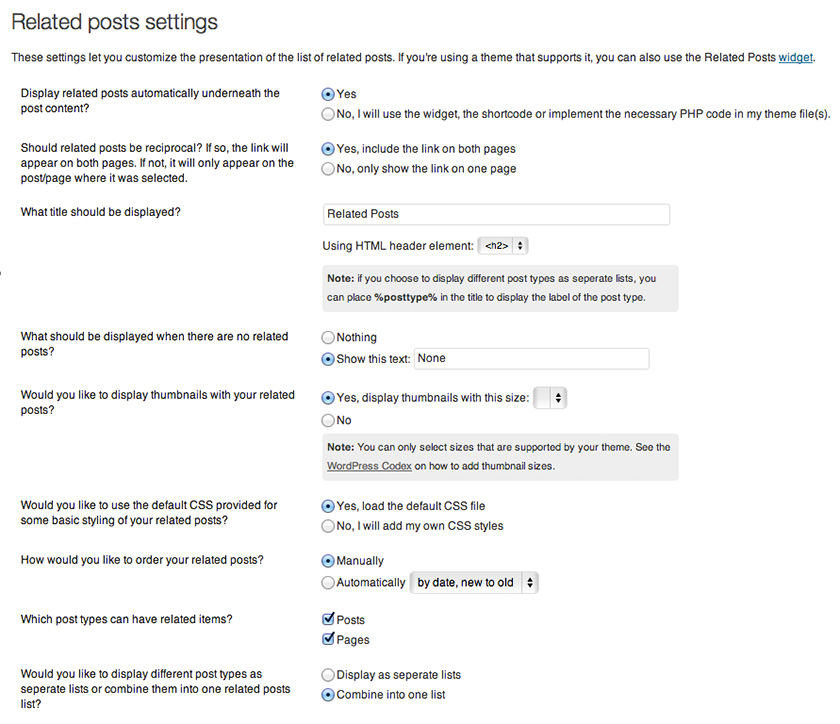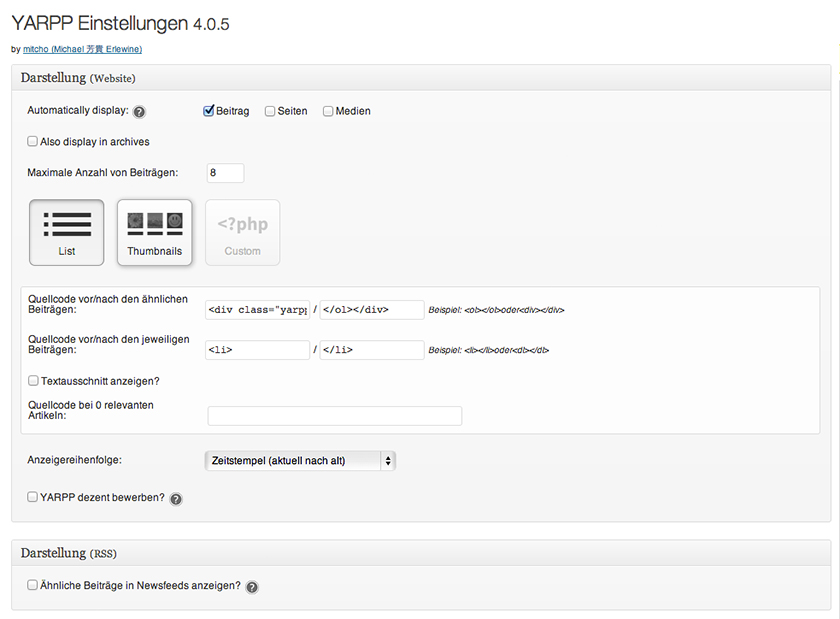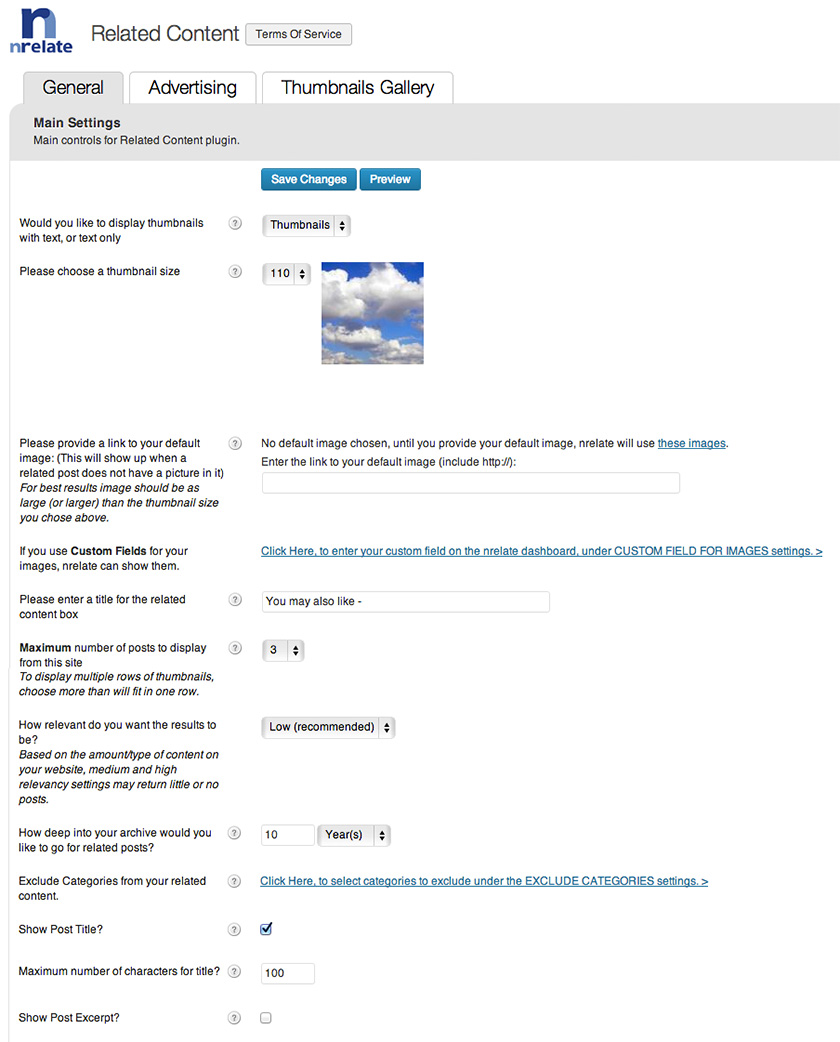Showing a list of related posts at the end of each post content is a great opportunity to feature older blog posts and show your readers other posts you have written about the same topic. This way all your valuable content will not be totally forgotten somewhere in your blogs archive. Since I’ve tested some of the more popular Related Posts WordPress plugins out there (and there are quite a few plugins available), I want to share my research with you.
1. Which Related Posts plugin is the right one for my blog?
There are quite a lot of Related Posts plugins available in the official WordPress.org Plugin-Directory. So finding the best plugin for your own blog can be a challenge.
First you should consider the following points:
- Do you want to choose your related posts manually while writing or editing your article or do you want the plugin to generate a list automatically?
- Do you want to decide where to include the list on your website (some plugins offer a PHP code snippet you can include in your theme template file, e.g. the content-single.php)?
- Do you want to show your related posts with a small image thumbnail or rather in a plain text list? Will you need a large number of prepared design options?
- Some plugins are using your own WordPress database to save the settings, some others will host the data on their own external servers, so you need to decide which kind of plugin you want to use.
2. My favorite Related Posts plugins
Now, since I have a first idea of the plugin options I have, here a short description of my favorite 3 plugins:
2.1. Related Posts for WordPress
Related Posts for WordPress-Plugin is a great option, if you want to choose your related posts manually. Of course it requires a little bit more work to choose related posts while writing a new post, but you also have the most control weather or not the posts in the lists are really relevant to the topic.

In my opinion Related Posts for WordPress is a good choice, if you haven’t published a lot of articles on you blog yet, or if you starting out with a new blog. For blogs with a lot of posts already published the plugin is probably not so easy to integrate.
2.2. YARPP (Yet Another Related Posts Plugin)
YARPP is something like a classic Related Posts WordPress plugins. The plugins is been around for quite some time and a lot of bloggers are using it. Therefore you can be sure that it works pretty stable and the plugin author releases regular plugin updates. YARPP uses the WordPress database to save the necessary data for the plugin on your own server space.

YARPPs settings page is easy-to-use and not very complicated. You can add your own HTML-tags to use before and after the related posts list, so it’s easy to add some special CSS classes to style your post list. The plugins also supports related posts with thumbnails.
2.3. nrelate Related Content
If you rather want to save the plugins data in an external data base, the nrelate Related Content WordPress plugin is a popular alternative. All the data will be saved on the external nrelate servers.

The plugins also offers some more layout options and compared to YARPP more options to include the related posts manually. With the help of a template tag your can include the related posts list anywhere in your posts or use a shortcode to add related posts only to specific posts (more infos see the plugin description in the WordPress plugin directory).
Conclusion
For the Elmastudio blog I decided to go for a pretty simple solution using the YARPP plugin and a standard text list. I also added some additional CSS styles for my list (right now the plugin is only active on the German version of our blog though). Since we have already a lot of older posts available, I’m quite happy with the results showing up, too.
Your Feedback?
What are your experiences using Related Post plugins for our WordPress blog? What is your feedback regarding the plugins mentioned in the article and what other plugin would you recommend? Let me know what you think and share your further tips!




Leave a Reply